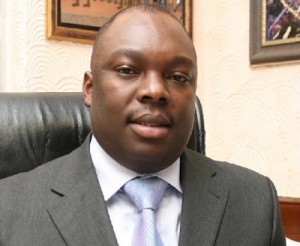
Government has approved key technical and policy recommendations to facilitate Zambia’s digital migration programme.
Information and Broadcasting Services Permanent Secretary (PS) Amos Malupenga says with the approval by Cabinet the National Taskforce on Migration is now expected to scale up the implementation of the digital migration process.
Mr. Malupenga disclosed this when he officially opened a two-day stakeholders consultative conference on digital migration at Government Complex in Lusaka today.
The Permanent Secretary said the implementation of the programme was key as it is in line with Government’s agenda to overhaul the broadcasting industry so that it contributes effectively to national development.
Mr. Malupenga said digital television broadcasting will also enhance parental control over children by restricting access to certain programmes that may not be morally suitable for their viewing.
He noted that digital television also makes it possible to simultaneously transmit many high quality pictures and sound through efficient use of frequencies, which are a limited resource.
Mr. Malupenga said while analogue television uses one frequency to carry one programme channel, digital terrestrial television uses one frequency to carry multiple programme channels, thereby allowing for greater choice and variety for viewers.
He added that government’s expectation is that broadcasters and production houses in Zambia will rise to the occasion and use the huge technological capacity that digital terrestrial television avails to contribute towards job creation.
Meanwhile, National Taskforce on Migration Chairperson Luwani Soko noted that the Taskforce’s mandate is to oversee and ensure that the digital migration process is done within the specified time frame.
Mr. Soko said various stakeholders have been approached to work with the task force on how best to implement the digital migration process.
The International Telecommunication Union (ITU), a United Nations (UN) agency, has set June 17, 2015, as the deadline for countries across the world to migrate from analogue to digital television broadcasting.
In view of this deadline, the Southern African Development Community (SADC), has set December, 2013, as the deadline for member states in the region to migrate from analogue to digital terrestrial television in order to allow for a smooth and orderly transition and shut-down of analogue television transmission by 2015.
ZANIS

Do you even understand what you’re talking about?
That’s very good Amos that’s the way it should be, the western countries will be shutting down in 2015 also. We have to be moving together Zambia and Africa as a whole should not be lagging behind. Excellent work on the part of Government.
whatever!! I hope these statements are not because of your one year disastrous anniversary coming up. Road this…Digital that….bla bla bla
THINGS HAVE STARTED HAPPENING IN PF ERA.
So what will happen to analogue television sets in majority of zambian homes?…what an efficient way to shunt off the poor from news and entertainment…!
WHATEVER IT MEANS it still sounds no money in peoples pockets, can u please show some calculations (Calculus) how to calculate signal frequency in digital domain??????/
Probably physics but the average consumer of a device or system likes to keep things simple and f=1/T is not the answer :( A frequency is still a frequency in the analogue or digital domain so you’ll have to be clearer what your thoughts are. Are you asking about frequency range or RF,I/Q? Digital service provision and jobs across sectors sound like two different topics.
Why are we so behind? Kenya went digital back in 2011 but zed is still moving like a tortoise.
# 5 – Cycle Mata
Its digital in Japan but I still use my analogue TV using a receiver. May be they can use the same and it costs about 3000 yen or about K180,000.
Thats correct, but it appears most tv users especially in rural areas don’t understand the implications of migration. Think of those villagers who still use black and white sets on battery power, will they manage the additional costs?
That’s good. It means they’ll be a decoder to with all the zambian channels tuned in it.
Things go up in steps so those who can afford it will go all the way with digital tv’s whilst those who can’t will opt for analogue tv to digital transfer device. The remark about poor villagers could also take in to account that poor does not mean without a brain cell. People will catch up. What’s more important is to get access to improved income or revenue generation streams to remote areas with electricity, clean water, health facilities, roads and transport. Then caring about a telly will be as it has always been. A sign of economic progress.
Ivi vizungu vamene mukamba kamba va ma digital vilibe nchito. Ise tifuna cabe food on the table.
Please Malupenga make it simple for some of us. Does it mean when watching Barcelona on Digital Messi will be taller and fat?